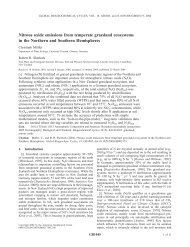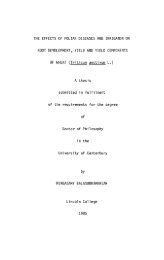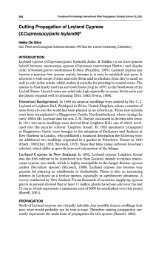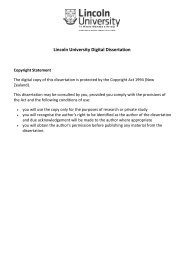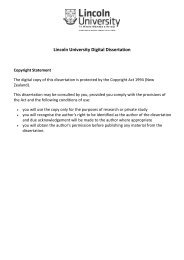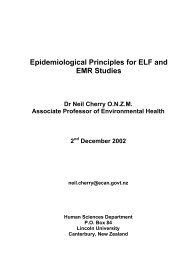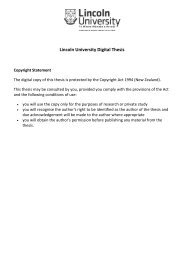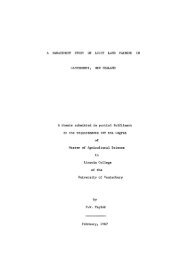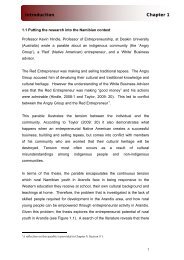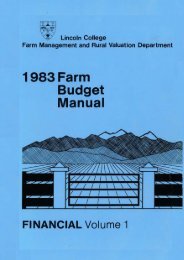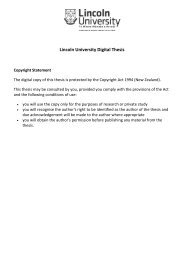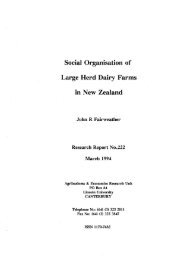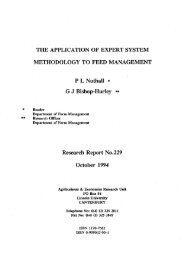Lincoln University Digital Dissertation - Lincoln University Research ...
Lincoln University Digital Dissertation - Lincoln University Research ...
Lincoln University Digital Dissertation - Lincoln University Research ...
Create successful ePaper yourself
Turn your PDF publications into a flip-book with our unique Google optimized e-Paper software.
2.3 Maori worldviews<br />
Societies and communities within societies have their own cultures which<br />
reflect a unique perspective or way of seeing the world – they have their own<br />
‘world view’ or ‘paradigm’.<br />
“The word [paradigm] comes from the Greek word paradeigma which<br />
translates literally as ‘pattern’. It is used in social science to describe an entire<br />
way of looking at the world. It relates to a particular set of philosophical<br />
assumptions about what the world is made of and how it works… The point<br />
about paradigms is that they provide the landscape in which individual<br />
theories can flourish. Those theories, within a paradigm, are subsumed under<br />
broader generalisations about what the world is made up of, how it works, and<br />
how we can know about it.” (Davidson & Tolich, 2003: 26).<br />
The way that communities of people view the world informs the way they<br />
behave towards each other and their environment, the values they hold as<br />
well as their customs and traditions. Maori share a unique traditional<br />
worldview which emphasises a connectedness between people, other beings<br />
and resources, realised through whakapapa.<br />
2.3.1 Whakapapa<br />
Royal (1992) describes whakapapa, or genealogy as, “the foundation of Maori<br />
society”. From a Maori perspective, an appreciation of whakapapa is central<br />
to human connections with the environment and links the different parts of the<br />
natural world. A number of values or principles stem from whakapapa, guiding<br />
the way in which Maori see and treat the land and other resources (Roskruge,<br />
2006). A traditional Maori worldview is based on whakapapa and represents a<br />
means for describing and relating aspects of the world we live in. As Kawharu<br />
(1998: 16) states:<br />
“Proof in Maori terms of gods and ancestors is [traditionally] denoted through<br />
whakapapa, a genealogical recital connecting humans, their ancestors and<br />
11



